1.
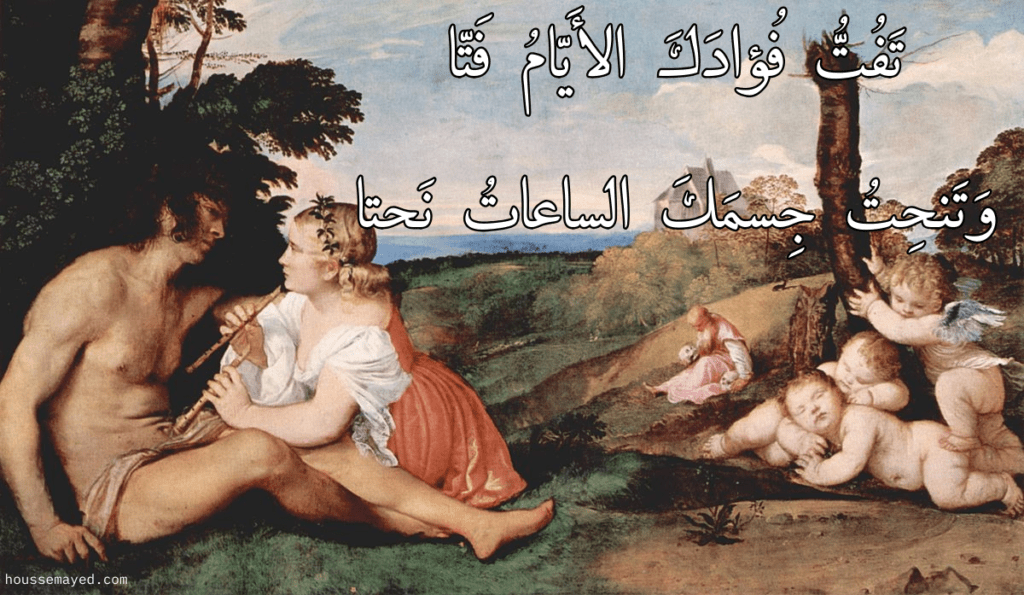
The passing of days¹ crushes your heart into crumbs,
And hours carve away at your body
[¹] Literally, “Days crush your heart…”
2.
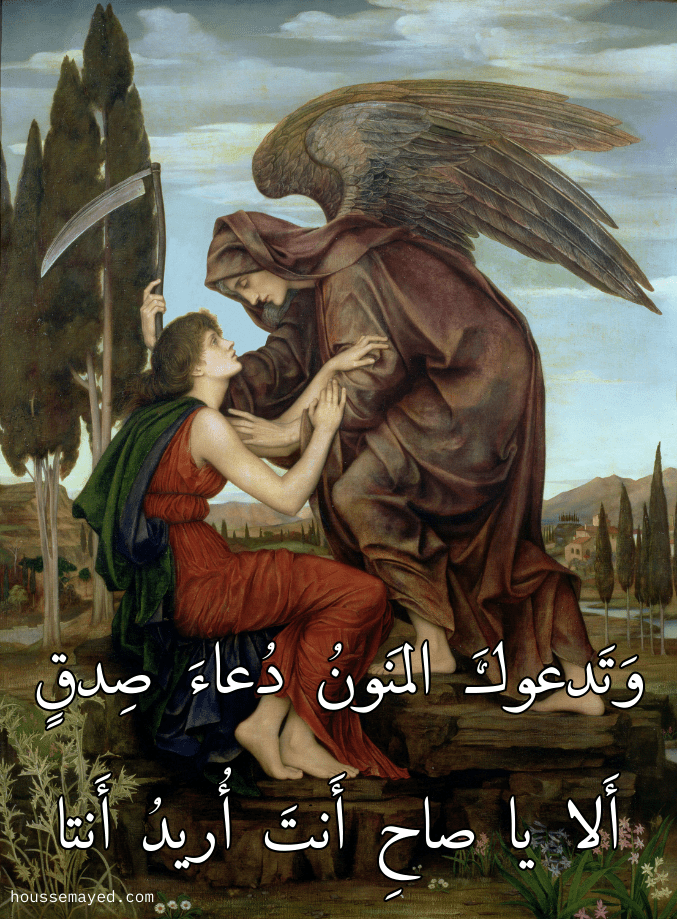
Death calls out to you in earnest,
“O friend! It is you I desire! You!”
3.
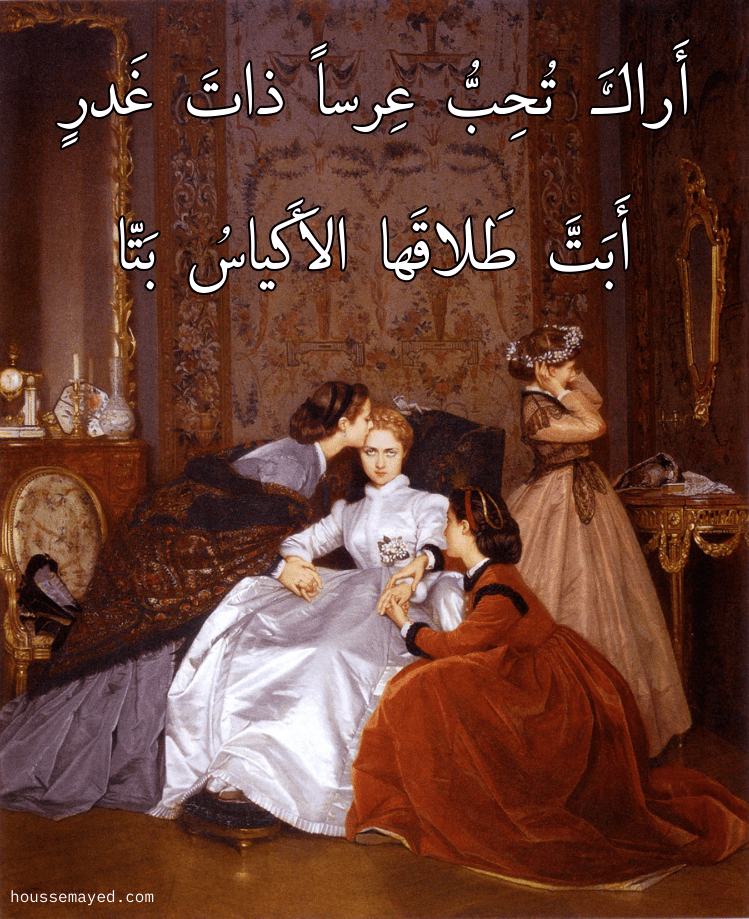
I see that you care for a treacherous bride
Whom astute men have divorced irrevocably.
4.
![Woe unto you! You sleep through life snoring,
[Thinking] of her until such time as you die and awaken!](https://houssemayed.com/wp-content/uploads/2024/04/al-Ilbiri-4.png)
Woe unto you! You sleep through life snoring,
[Thinking] of her until such time as you die and awaken!
5.
![O how deceived you are! Until when
Will you not hold back from her? Until [when]?](https://houssemayed.com/wp-content/uploads/2024/04/al-Ilbiri-5.png)
O how deceived you are! Until when
Will you not hold back from her? Until [when]?
6.

Abū Bakr!² I’ve invited you—if only you’d take heed—
To your own best interest if only you understood
[²] There are two opinions regarding Abū Bakr. He is either the author’s son, or, more likely, he is a young man who mocked the author in a poem. The genre of Arabic poetry used to mock others is known as hijāʾ (هجـاء).
7.
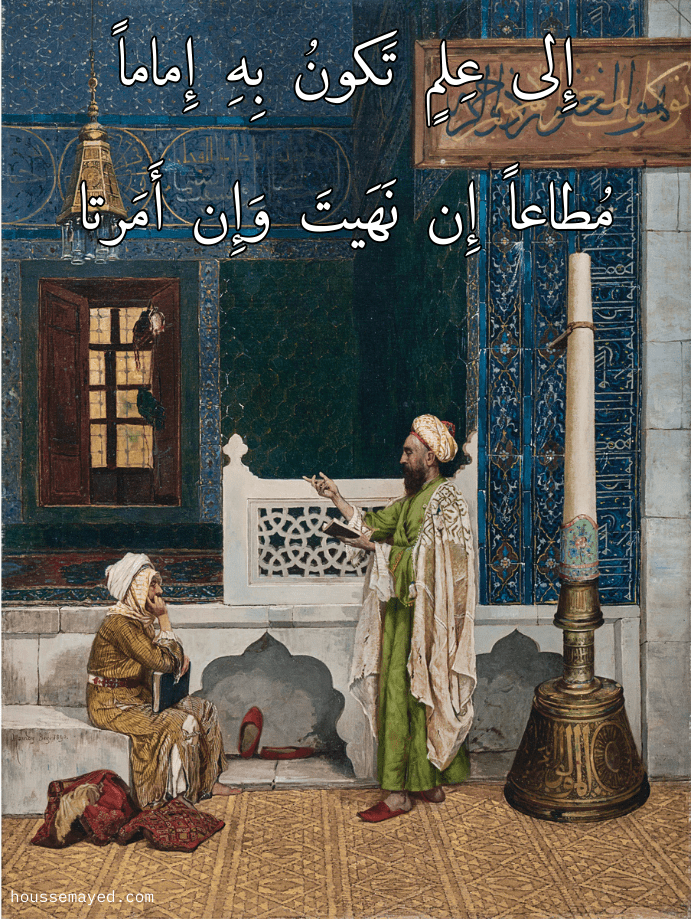
To knowledge that would make you an imām,
Obeyed whenever you command or prohibit
8.
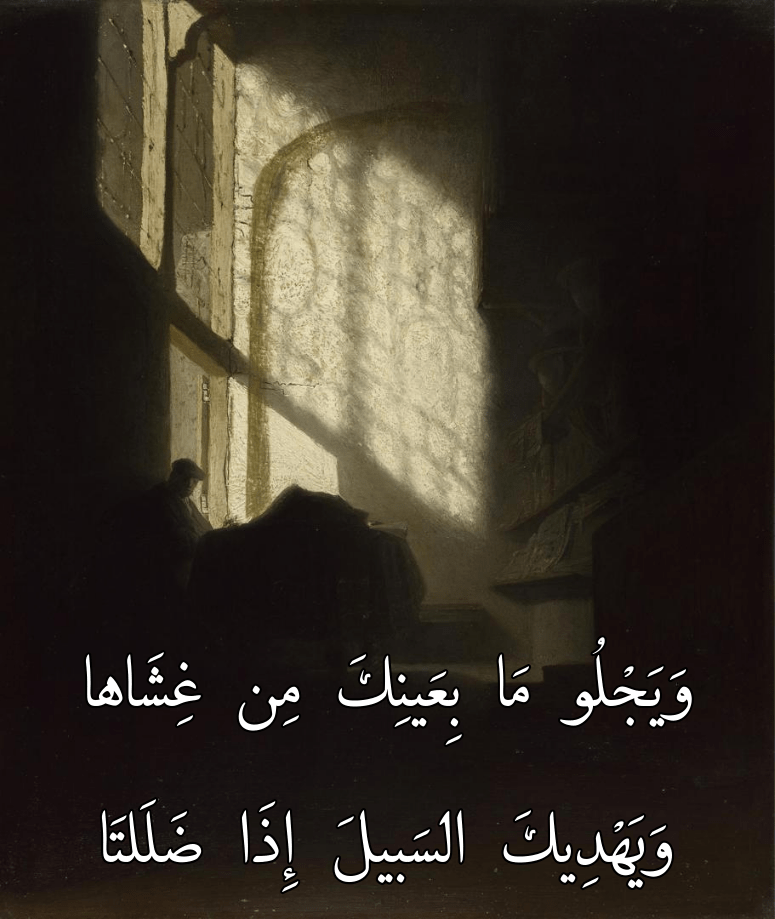
That clears up the film over your eyes
And shows you the way when you’re lost—
9.
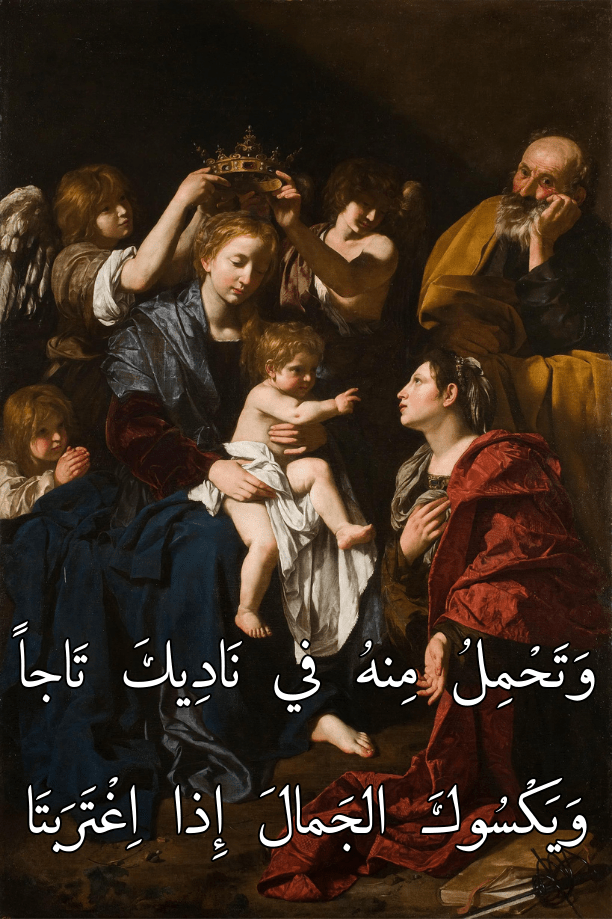
By virtue of which you will bear a crown in your own circle,
That clothes you in beauty when you’re a stranger.
10.
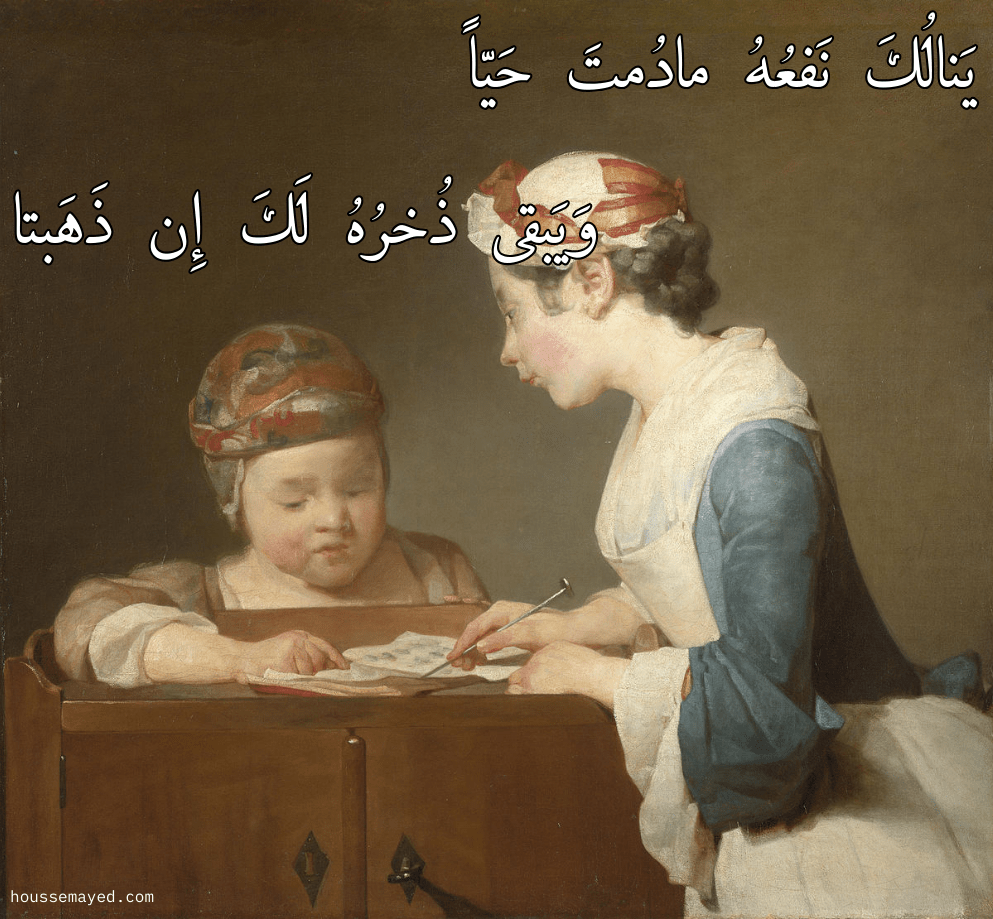
You will reap its benefits for as long as you are alive,
And its stores will remain after you’ve departed.
11.
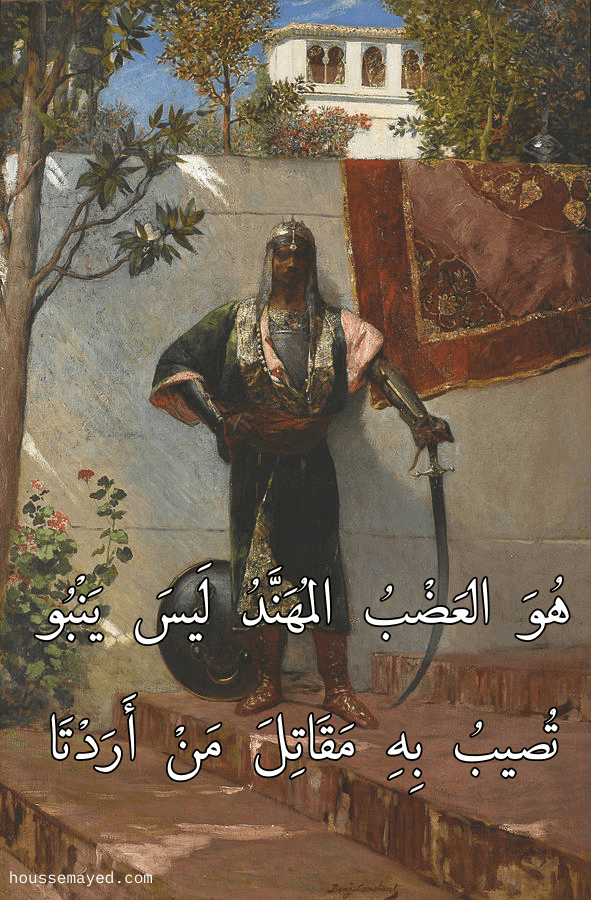
It is a sharp sword of Indian steel³ that doesn’t miss
And strikes the Achilles’ heels⁴ of those you desire—
[³] Swords made of Indian steel were coveted for their strength.
[⁴] The Arabic word maqātil means the fatal spots which, when struck, kill the victim.
12.
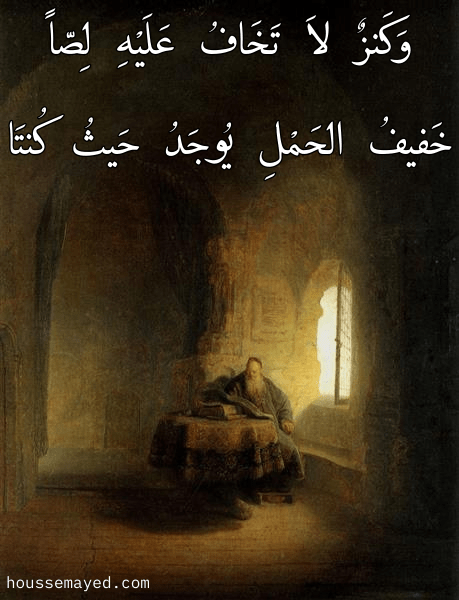
It is a treasure for which you fear no thieves,
A light burden that is found wherever you may be.
13.
![It increases the more you spend of it
And decreases if you hold on to it [stingily].](https://houssemayed.com/wp-content/uploads/2024/04/albiri-14.png)
It increases the more you spend of it
And decreases if you hold on to it [stingily].
